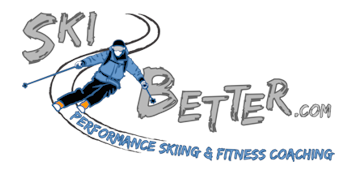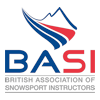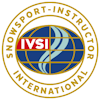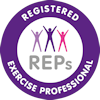At first glance it might seem strange to be talking about batteries in a skiing context.
However your performance will be compromised if your batteries are either not fully charged or over charged.
|
Physical |
Mental |
Knowledge |
 |
||
Like a battery operated car, all the batteries need to work together for you to achieve full potential; you will only be as strong as your weakest battery. They will be all switched on at the same time, it is no use just charging one when all of them need charging. To keep it simple we should consider that we have three linked batteries that power's us.
|
|
||
|
Physically |
Peaked too |
Physical Battery – Are you fuelled up and ready to go?
- Adequately supplied and fuelled up to perform –
- Energy (food & water) intake – when, where, what, often enough?
- Topped up, digested, rested and ready to go?
- Engine Power – is your engine as good as it could be?
- Strength, Fitness, Agility, Speed, Endurance, Stamina and Recovery
- What else do you do to prepare yourself
- Warmed up and ready for peak performance?
- Have you made best use of practice time
- Have you made tactical decisions based terrain, conditions and inspection
|
|
||
|
Too tired, |
Over |
Mental Battery – Are you mentally prepared and ready to commit yourself..
- Do you have the right levels of Confidence, Self control (of mind and actions), Self belief (determination), Courage (without courage, we remain dreamers)
- Others – Connect and understand (Empathy is not sympathy: connect with athlete but don't stay in the problem; find the right emotional distance. If you're too close to the athlete, you may find yourself in the problem)
- Team – gain strength from the team, respect and help the team, but remember you are still an individual and it is you that needs to perform.
- Changes – dealing with the emotions of change, new relationships & situations (coaching infrastructures, competition bands, competition from team members, other competitors, success, adulation, poor performance and achievement, injury, recovery, rediscovering lost form)
- Environment – dealing with travelling, strange slopes, people there, atmosphere, excitement, anticipation, yours and others expectations, personal focus before and during performance.
- Have you mentally rehearsed what you might expect to experience: visualise positively
- Be at one with your equipment – know that it is at hand, tuned up and ready to go
|
|
||
|
Don't know, |
Over analytical, |
Knowledge Battery – Use your head, but don't be afraid to ask for advice…
- You do not win by theory, technical explanations, technical changes on race day (races are won by acquired skill, physical condition, the right mental approach, and the tactics used)
- To attain a skill, you need to repeat it many times and repeat more for that skill to be acquired and retained.
- Train properly, be attentive, get the most out of your coaches and sessions available, have a positive mental attitude to training, try to relax and enjoy it as much as any other performance element.
- Control your training by working with your coaches by engaging and involving them in what you want to achieve, when you want to achieve it and how you want to achieve it.
- Become knowledgeable about as many parts of your performance as you can, take control of as many of them that you can, make sure you have make appropriate adjustments to them – rather like preparing your skis, are you prepared to tune yourself for optimum performance? Do you know what that would look like?
This article is a condensed form of the TTPPEE model:
- T – Technical (skill level)
- ABC's: Agility, Balance, Co-ordination,
- Fundamentals: movement control, general motor skills
- Skill level: Initiation, Acquisition, Consolidation, Refinement, Create Variation
- T – Tactical (right choices)
- start, line, turn shape used, etc.
- P – Psychological (courage)
- Commitment, metal preparation, getting into the zone, doing it
- P – Physical (strength)
- flexibility, speed, strength, endurance, reaction
- E – Environment (terrain, surface, weather, atmosphere)
- Wet, cold, hot, dry, windy, noisy, away slope, plastic, snow
- E – Equipment (right equipment, prepared correctly)
- correct skis & boots, sharp & waxed, poles, helmet, gloves, etc. have you got them!


 Ready To Go
Ready To Go















